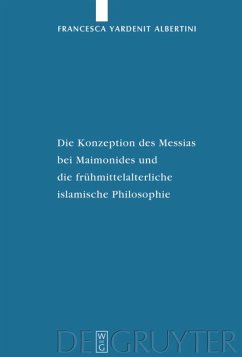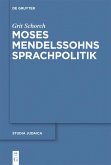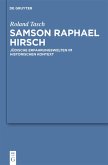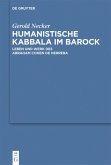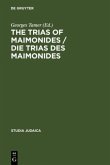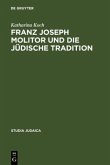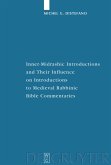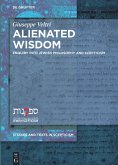Moses Maimonides (1138â??1204) supported a concept of the Messiah which was radically new within the Jewish tradition. The author of the present volume examines whether and to what extent this concept can be traced back to Early Medieval Islamic philosophy. She devotes particular attention to the religio-philosophical, philological, historical and political aspects of such an encounter. Starting from Islamic receptions of Platoâ??s and Aristotleâ??s thinking and from Karaitic theology, she undertakes a detailed analysis of the figure of the Messiah-King, of the notion of the â??world to comeâ? and of national and supra-national eschatology regarding the days of the Messiah.
Die Autorin analysiert die politische Konzeption des Messias als König und Gesetzgeber bei Maimonides in seinen Briefen, in Pereq Heleq sowie in Mishneh Torah. Besonderes Augenmerk liegt auf folgenden Schwerpunkten: a) die Konzeption des König-Philosophen bei Platon und Aristoteles; b) die karäischen Einflüsse auf Pereq Heleq sowie die Einflüsse der Mu'taziliten und der Ash'ariten durch die karäische Vermittlung; c) die individuelle und gemeinschaftliche Dimension des ´olam ha-ba im Werk Maimonides'; d.) die Beziehung zwischen Philosophie und Gesetz im Mishneh Torah und deren eschatologische Konzeption im Vergleich zu Al-Farabis politischen und religionsphilosophischen Werken. Die Analyse basiert auf einer ausführlichen Lektüre der jüdischen, arabischen und judäoarabischen Quellen.
Ziel der Autorin ist es, eine Lücke zu schließen in der politisch-philosophischen Kette zwischen Platon, Aristoteles, Al-Farabi und Maimonides in Bezug auf den messianischen König. Anhand der Denkstrukturen der jüdisch-islamischen Epoche zwischen dem 8. und dem 12. Jahrhundert wird der politische Charakter des König-Messias sowie seine spezifische Darstellung im intellektuellen Milieu von Maimonides konstruiert.
Die Autorin analysiert die politische Konzeption des Messias als König und Gesetzgeber bei Maimonides in seinen Briefen, in Pereq Heleq sowie in Mishneh Torah. Besonderes Augenmerk liegt auf folgenden Schwerpunkten: a) die Konzeption des König-Philosophen bei Platon und Aristoteles; b) die karäischen Einflüsse auf Pereq Heleq sowie die Einflüsse der Mu'taziliten und der Ash'ariten durch die karäische Vermittlung; c) die individuelle und gemeinschaftliche Dimension des ´olam ha-ba im Werk Maimonides'; d.) die Beziehung zwischen Philosophie und Gesetz im Mishneh Torah und deren eschatologische Konzeption im Vergleich zu Al-Farabis politischen und religionsphilosophischen Werken. Die Analyse basiert auf einer ausführlichen Lektüre der jüdischen, arabischen und judäoarabischen Quellen.
Ziel der Autorin ist es, eine Lücke zu schließen in der politisch-philosophischen Kette zwischen Platon, Aristoteles, Al-Farabi und Maimonides in Bezug auf den messianischen König. Anhand der Denkstrukturen der jüdisch-islamischen Epoche zwischen dem 8. und dem 12. Jahrhundert wird der politische Charakter des König-Messias sowie seine spezifische Darstellung im intellektuellen Milieu von Maimonides konstruiert.

